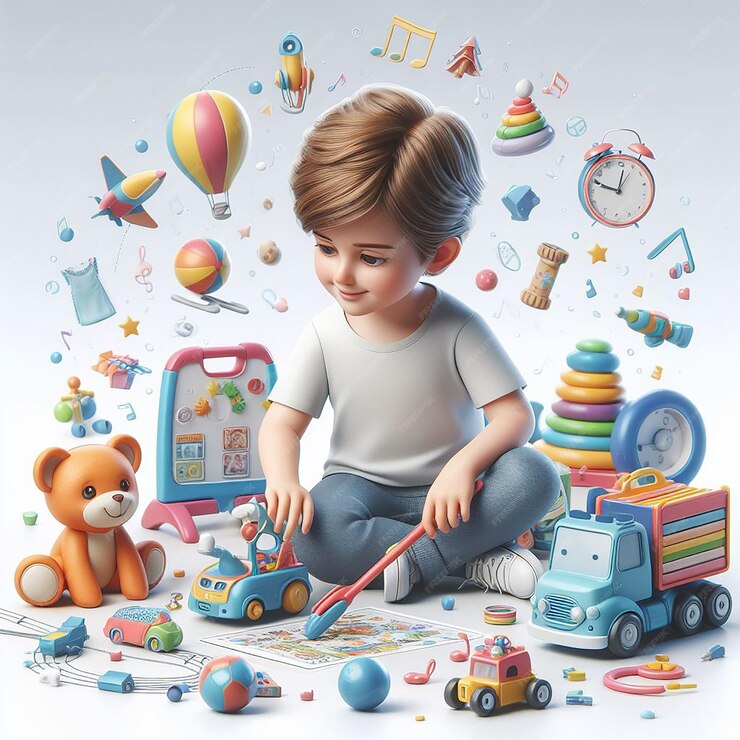I. Introduction
A. Importance of Toy Safety in Protecting Children
Toy safety is paramount in ensuring the well-being and development of children. As children explore and learn about their world through play, toys become essential tools for growth, imagination, and education. However, toys that are not designed or manufactured with safety in mind can pose serious risks, including choking hazards, toxic exposures, and physical injuries. The importance of toy safety cannot be overstated; it is crucial to protect children from potential dangers that could impact their health and safety. These regulations are particularly important as they provide guidelines and requirements for toy manufacturers to follow, helping to prevent accidents and ensure that products meet high safety standards. Ensuring that toys are safe not only protects children but also helps to build trust among parents and caregivers who seek reliable and secure products for their children.
B. Overview of CE Certification and Its Relevance to Toy Safety
CE Certification is a vital component of ensuring toy safety within the European market. The “CE” mark, which stands for “Conformité Européenne” (European Conformity), signifies that a product meets the safety, health, and environmental protection standards required by European legislation. For toys, CE Certification is governed by the Toy Safety Directive (2009/48/EC), which sets out the essential safety requirements that toys must meet to be sold in the European Union. The CE mark indicates that a toy has undergone rigorous testing and assessment to ensure it complies with these standards. This certification process involves evaluating the toy’s design, materials, and manufacturing processes to identify and mitigate potential hazards. The relevance of CE Certification in toy safety lies in its role as a benchmark for quality and safety, providing assurance to consumers and regulators that the toy has been independently verified for safety and compliance.
II. Understanding CE Certification
A. Definition of CE Certification
CE Certification is a mark of conformity that signifies a product meets the essential requirements outlined by European Union (EU) directives and regulations. The “CE” stands for “Conformité Européenne,” which translates to “European Conformity.” This certification is mandatory for products sold within the European Economic Area (EEA) and indicates that the product has been assessed and meets EU safety, health, and environmental protection standards. The CE mark must be visibly affixed to the toy or its packaging, and it provides consumers and regulatory authorities with assurance that the toy has been evaluated according to rigorous standards.
B. Purpose and Scope of CE Certification
For toys, CE Certification addresses various safety concerns such as:
1. Physical and Mechanical Properties
Toys are tested to ensure they do not contain small parts that could pose a choking risk, especially for children under three years old. Small parts that can be detached from the toy or that are small enough to be swallowed or inhaled are carefully scrutinized. The toy’s construction must be robust and durable. This includes testing for sharp edges, points, and other design elements that could cause cuts or abrasions.
2. Chemical Properties
Toys undergo tests to detect lead and other heavy metals, which can be toxic if ingested or absorbed through the skin. Regulations strictly control the limits for these substances to prevent health risks. Manufacturers test for phthalates, which are commonly used to soften plastics, to ensure they do not exceed safe levels. They also conduct comprehensive testing for other potentially harmful chemicals, such as pesticides, flame retardants, and hazardous dyes, which could pose health risks if the toy is mouthed or touches the skin.
Toys with electrical parts are tested to ensure proper insulation and safe wiring. This prevents risks such as electrical shocks or short circuits. Manufacturers must securely enclose and protect all electrical components from exposure. They design battery compartments to be both secure and child-resistant. They must prevent children from accessing batteries or electrical parts. Additionally, the design should prevent batteries from leaking, which could cause chemical burns or other injuries.
III. Benefits of CE Certification for Toy Manufacturers
A. Market Access and Expansion
CE Certification is a crucial gateway for toy manufacturers seeking to enter and expand in the European market. Achieving CE Certification confirms that toys meet the safety, health, and environmental standards mandated by European regulations. This certification allows manufacturers to legally market and distribute their products across these countries. The main goal of CE Certification is to ensure that products, including toys, meet the necessary safety and quality standards before entering the EU market. Obtaining CE Certification significantly helps toy manufacturers in reducing liability and minimizing the risk of product recalls.
B. Consumer Trust and Confidence
CE Certification plays a crucial role in building consumer trust and confidence in toy products. This trust is pivotal for several reasons:
1. Assurance of Safety
The CE mark is a powerful symbol of safety and quality for consumers, especially for parents and caregivers who are particularly cautious about the products they choose for their children. When a toy bears the CE mark, it signifies that it has undergone thorough testing and evaluation to ensure it meets stringent European safety requirements. This testing covers various aspects, including physical and mechanical properties, chemical content, and overall design safety.
2. Enhanced Brand Reputation
Brands that achieve CE Certification often enjoy a boost in their reputation, as the certification reflects a commitment to high safety and quality standards. The CE mark signals to consumers that the brand prioritizes rigorous safety protocols and adheres to internationally recognized standards. This positive perception can greatly enhance brand reputation, making the brand appear more reliable and responsible.
3. Transparency and Accountability
CE Certification embodies a manufacturer’s dedication to transparency and accountability in product safety. The certification process involves rigorous scrutiny and strict adherence to detailed safety standards, showcasing the manufacturer’s commitment to high-quality, safe products. This transparency is vital for building consumer trust.
IV. Conclusion
A. Recap of the Importance of CE Certification in Toy Safety
CE Certification plays a crucial role in ensuring toy safety, serving as a vital benchmark for manufacturers, consumers, and regulatory bodies alike. It aims to protect consumers by confirming that products do not pose a risk to health, safety, or the environment. This certification encompasses a wide range of safety aspects, including physical and mechanical properties, chemical content, flammability, and electrical safety. By adhering to these standards, CE Certification protects children from potential hazards and ensures toy safety. The importance of CE Certification goes beyond mere compliance. It provides parents and caregivers with tangible assurance that the toy makers have rigorously evaluated the toys for safety and quality. This assurance fosters consumer trust and confidence. It also helps maintain the integrity of the toy market.
B. Encouragement for Manufacturers
For toy manufacturers, pursuing CE Certification is more than just a regulatory requirement—it is an opportunity to demonstrate commitment to safety, quality, and consumer trust. The certification process may require an investment of time and resources, but the benefits far outweigh the costs. By achieving CE Certification, manufacturers gain access to the lucrative European market and enhance their global competitiveness. The certification also strengthens brand reputation, builds consumer confidence, and reduces the risk of costly recalls and legal issues. It reflects a dedication to high standards and responsible practices, which can differentiate their products in a crowded marketplace. Embracing the rigorous standards of CE Certification is a proactive step towards ensuring the safety and reliability of toys, ultimately benefiting both the business and its customers.




